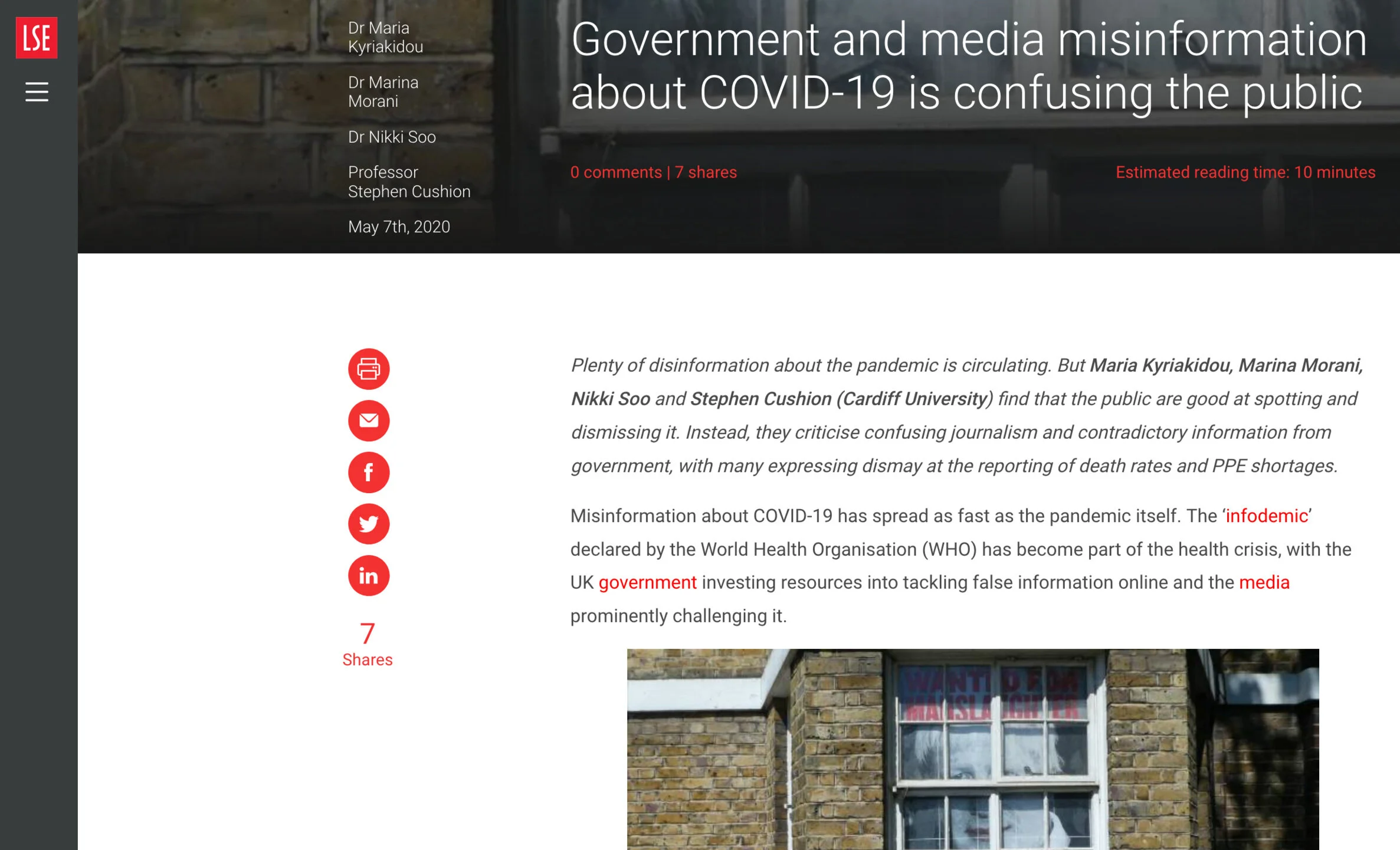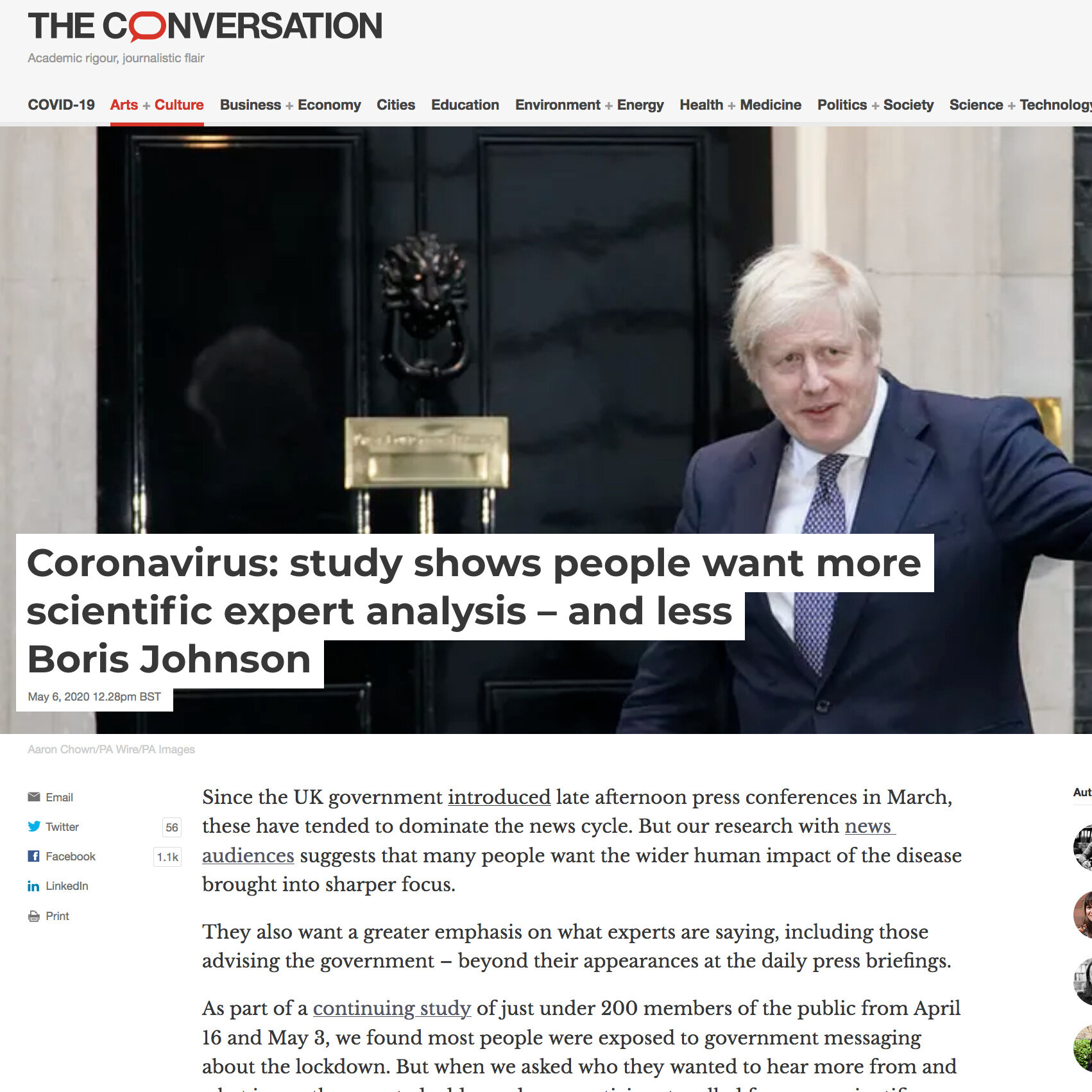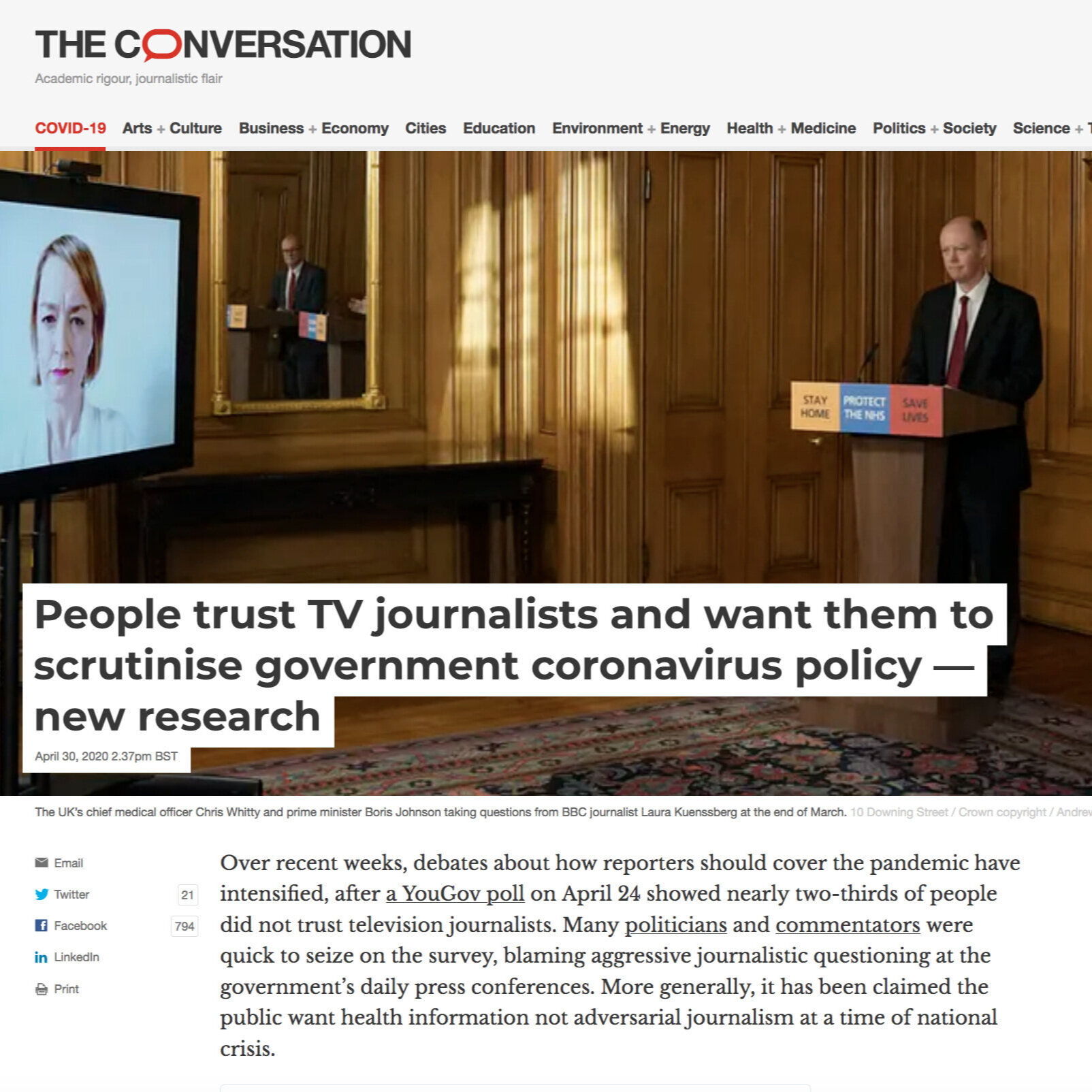Latest research
Our latest piece of research has recently been published in Journalism Studies; “Does the political context shape how “due impartiality” is interpreted? An analysis of BBC reporting of the 2019 UK and 2020 US election campaigns.” The research shows inconsistencies with how impartiality seems to be employed within the BBC, and in many instances a continued reliance on balance and “he-said-she-said” reporting, rather than true impartiality.
You can read the full paper here. To watch an animation highlighting some of the main findings of the paper, click on the video to the right. We worked with Learning on Screen to produce the video.

The ‘hospectacle’ of reporting from ICUs: what does the public want to see?
TV news bulletins have used footage from inside hospitals that are treating patients afflicted by coronavirus. We look at the ethical issues raised by these reports, and what the public thinks of them.

People have been switching off from coronavirus news – but the Dominic Cummings story cut through
The turmoil about whether Boris Johnson’s chief adviser, Dominic Cummings, broke the UK’s lockdown rules has fuelled public anger about the government. This is despite many people experiencing “news fatigue” that led them to either start avoiding news altogether or pay less attention to news coverage, our research has found. Our study of the public’s opinions about media coverage of COVID-19 found many people wanted journalists to hold Cummings to account with some suggesting his actions may have influenced other people to break the UK’s lockdown rules.

Different lockdown rules in the four nations are confusing the public
When lockdown was eased in England but not in other nations, the devolved administrations were at pains to stress that people living in England could not travel to Wales or Scotland to exercise. But our news diary research, found widespread confusion about the different rules across the UK. While broadcasters provided some clarity about the different lock down measures between the four nations, newspaper headlines often supplied limited context.

Coronavirus: Public confused and suspicious over government’s death toll information
Our research with just under 200 participants drawn from a representative mix of the UK population found that most people were far more aware of the UK’s high COVID-19 death rate when compared to other nations than they were in April. But, crucially, many people did not realise the UK was the worst-hit country in the world, according to the excess death rate figure. Overall, we found widespread public confusion and mistrust in how the death rate was reported.

Coronavirus: People want media to ramp up fact-checking and question dubious claims
How well the media holds the UK government to account over its handling of the pandemic is a question that has been fiercely debated over recent weeks. Journalists have been attacked for asking difficult questions at press briefings, while broadcasters have been criticised for challenging government decisions. Our comparative analysis of news bulletins revealed striking differences between broadcasters.

Government and media misinformation about COVID-19 is confusing the public
Plenty of disinformation about the pandemic is circulating. But our research found that the public are good at spotting and dismissing it. Instead, they criticise confusing journalism and contradictory information from government, with many expressing dismay at the reporting of death rates and PPE shortages.

Coronavirus: Study shows people want more scientific expert analysis – and less Boris Johnson
As part of our study with just under 200 members of the public from April 16 and May 3, we found most people were exposed to government messaging about the lockdown. But when we asked who they wanted to hear more from and what issues they wanted addressed, our participants called for more scientific experts, free from political interference.

People trust TV journalists and want them to scrutinise government coronavirus policy
Generally, it has been claimed the public want health information not adversarial journalism at a time of national crisis. However, our study with almost 200 participants during the pandemic showed news journalists are trusted – particularly those working for broadcasters. Moreover, we found they wanted more – not less – critical coverage of the government’s response to the pandemic.

Research suggests UK public can spot fake news about COVID-19, but don’t realise the UK’s death toll is far higher than in many other countries
How much does the British public know about the pandemic? Our sample of 200 people and found that while there is widespread rejection of the 5G conspiracy theory, many people do not realise the UK death rate is far higher than in other countries.